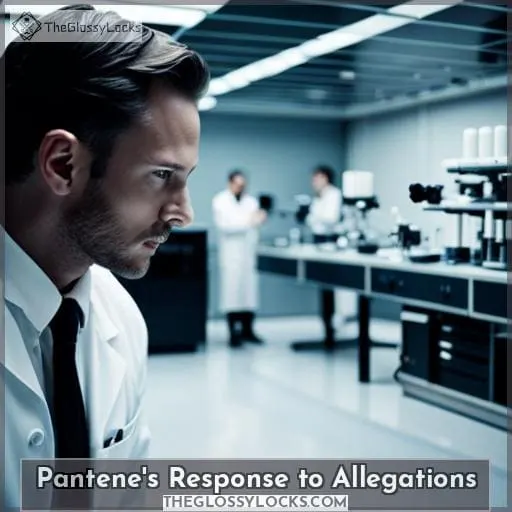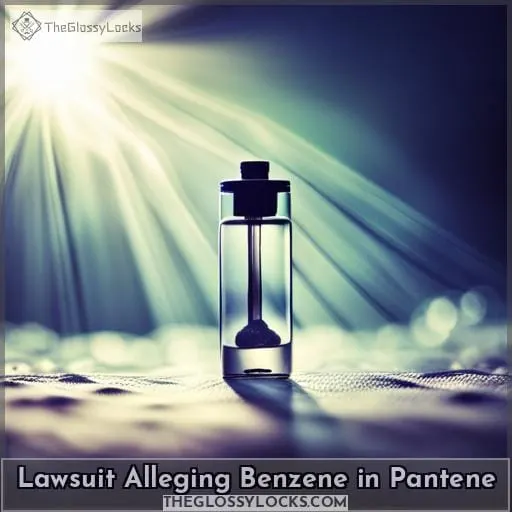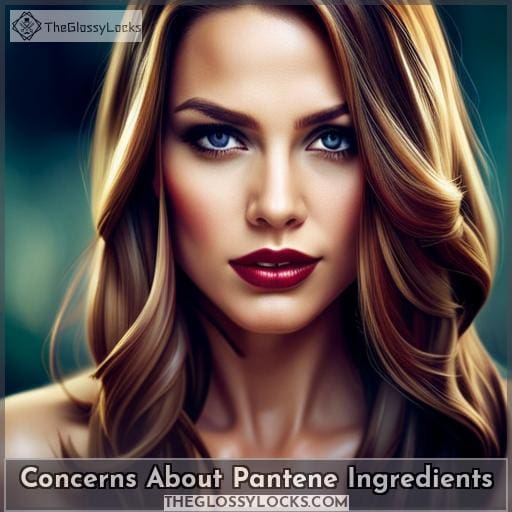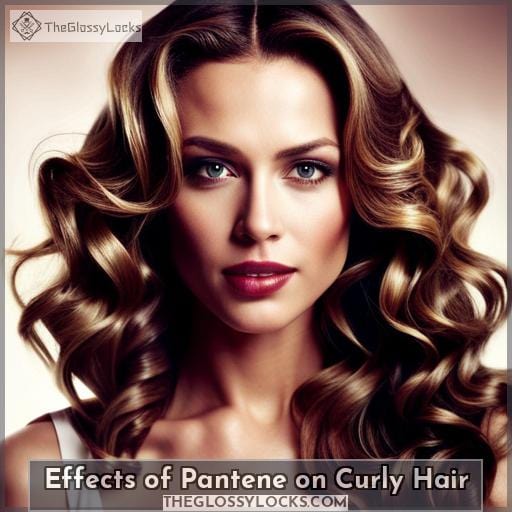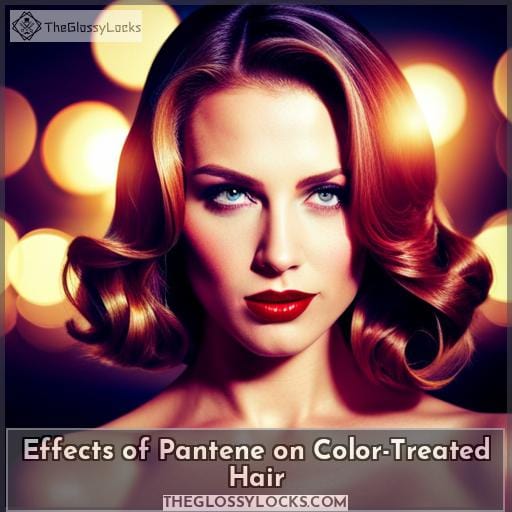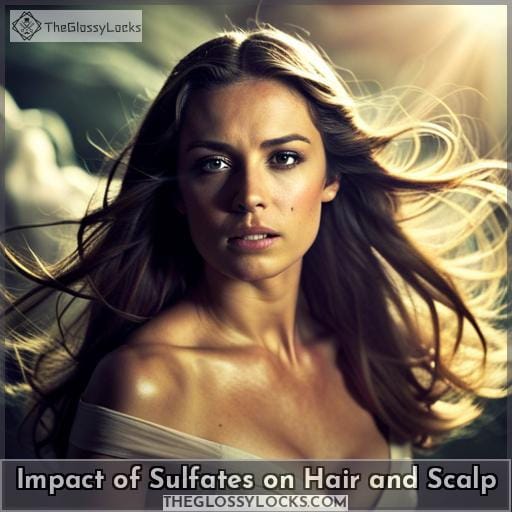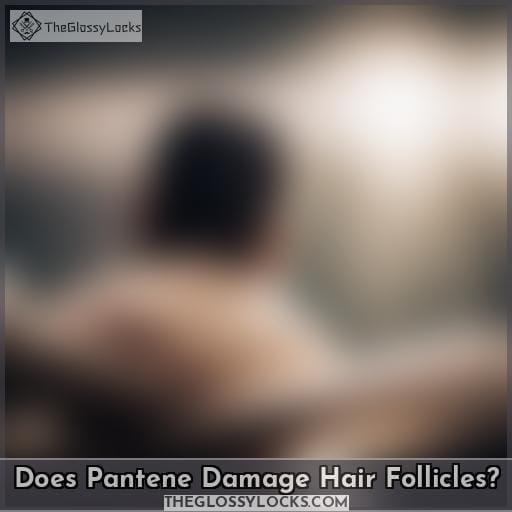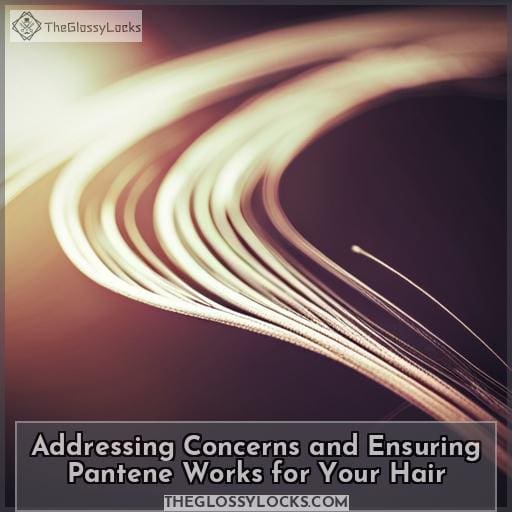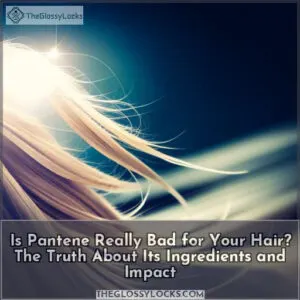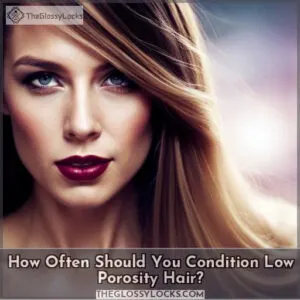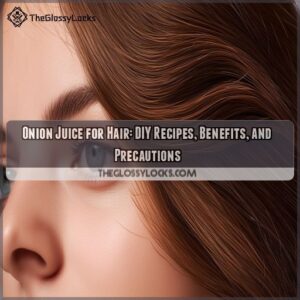This site is supported by our readers. We may earn a commission, at no cost to you, if you purchase through links.
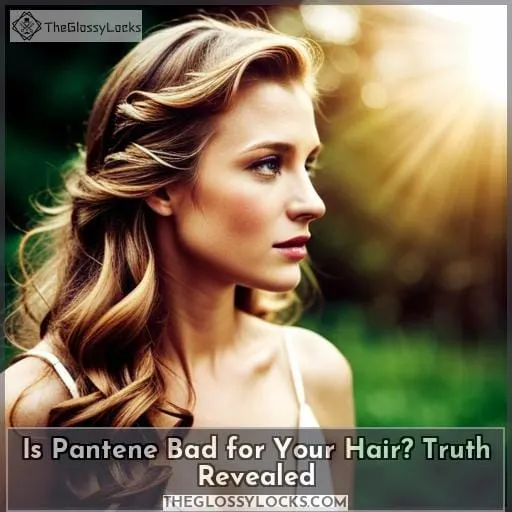 Do you ever feel like your hair is just not as healthy or vibrant as it used to be? If so, the blame might fall on Pantene – a popular drugstore brand of shampoos and other hair care products. But is Pantene bad for your hair? To unravel this mystery, let’s explore what we know about Pantene and its ingredients; their possible effects on our locks; and how Pantene has responded to allegations against them.
Do you ever feel like your hair is just not as healthy or vibrant as it used to be? If so, the blame might fall on Pantene – a popular drugstore brand of shampoos and other hair care products. But is Pantene bad for your hair? To unravel this mystery, let’s explore what we know about Pantene and its ingredients; their possible effects on our locks; and how Pantene has responded to allegations against them.
From sulfates to harsh chemicals, fragrance to parabens — it’s time to dig into the truth behind one of America’s most beloved hair care brands.
Table Of Contents
- Key Takeaways
- Pantene’s Response to Allegations
- Lawsuit Alleging Benzene in Pantene
- Concerns About Pantene Ingredients
- Effects of Pantene on Curly Hair
- Effects of Pantene on Color-Treated Hair
- Impact of Sulfates on Hair and Scalp
- Does Pantene Damage Hair Follicles?
- Addressing Concerns and Ensuring Pantene Works for Your Hair
- Conclusion
Key Takeaways
- Some ingredients in Pantene like sulfates and silicones have raised concerns about potential hair damage and buildup.
- Controversy exists over whether ingredients in Pantene such as sulfates irritate hair and lead to dryness.
- Scientific evidence linking Pantene’s formulas to long-term follicle damage is lacking.
- Choosing the right Pantene product ingredients for your hair type is important for maintaining hair health.
Pantene’s Response to Allegations
You’ve felt those silky strands become coarse and brittle, despite Pantene’s promises of long, flowing locks. Pantene defends its formulations, stating cosmetic science can’t prove certain ingredients damage hair.
However, the brand acknowledges some ingredients may irritate sensitive scalps, pledging continued reformulation.
Though touting clinical testing, Pantene reveals limited data on specific ingredient effects. They reference consumer satisfaction surveys, but anecdotal complaints about limp, frizzy hair persist.
With influential bloggers and consumer groups questioning Pantene’s effects, the brand confronts an uphill battle regaining trust. Improving transparency and reducing harsh surfactants and silicones may restore Pantene’s reputation.
But the company walks a fine line between scientific evidence and public perception in a competitive hair care market.
Lawsuit Alleging Benzene in Pantene
Although you’d think a major brand like Pantene would thoroughly test their products, a class action lawsuit alleged they contained the toxic chemical benzene, resulting in an $8 million settlement. In 2021, tests by an independent lab found concerning levels of benzene in some Pantene products.
Benzene is a known human carcinogen linked to leukemia and other cancers. The plaintiffs claimed that Pantene failed to adequately test for benzene contamination, putting consumers at risk without their knowledge.
Pantene denied the allegations but agreed to an $8 million settlement to avoid further legal costs.
The case raised alarms about potential carcinogens in hair care products we assume to be safe. While the impact on individual health is uncertain, the lawsuit prompted calls for brands to be transparent and vigilant about eliminating toxins.
Scrutinizing ingredient lists and seeking clean alternatives may give conscientious consumers greater peace of mind.
Concerns About Pantene Ingredients
Many people wonder if Pantene shampoos and conditioners are bad for your hair due to concerns over some of the ingredients. Sulfates, silicone, and added fragrances in Pantene can potentially lead to dryness, buildup, and irritation for certain hair types.
Sulfates
Let’s take a closer look at the concerning sulfates in Pantene.
- Sulfates provide strong cleansing but can strip the natural oils from hair, causing dryness.
- Frequent use of sulfates may irritate sensitive scalps and damage hair follicles over time.
- Consider using sulfate-free shampoos if you are experiencing scalp irritation or are washing your hair daily.
The choice of shampoo depends on your hair’s needs. Look for options that are gentle enough to cleanse without over-drying your hair.
Harsh Chemicals
Wince as harsh chemicals secretly strip your locks of their natural oils.
| Chemical Concern | Hair Impact |
|---|---|
| Sodium Lauryl Sulfate | Dries hair, irritation |
| Methylchloroisothiazolinone | Allergic reactions |
| DMDM Hydantoin | Hair loss, scalp issues |
| Parabens | Hormone disruption |
| Phthalates | Brittle hair, thinning |
Scrutinize ingredients for hair health. Seek products with plant oils, not plastic coating.
Silicone
You’re leery of silicone buildup from repeated use. Pantene conditioners rely on silicone for that ultra-smooth, slippery feel. But some worry silicone leaves residue, weighs hair down, and requires harsh sulfates to remove.
Consider silicone-free alternatives like silicone-free styling creams and oils for shine without buildup. Alternatively, clarify occasionally with a sulfate shampoo to remove silicone residue. Fundamentally, silicone isn’t inherently damaging. However, be cognizant of potential accumulation and its impact on your hair texture over time.
Fragrance
With that fresh lavender scent tickling your nose, you’re taken aback by its harsh sting on your sensitive scalp. Many fragrant ingredients in Pantene, like perfumes or essential oils, though alluring, may irritate those prone to scent sensitivities or allergies.
Fragrance-free options allow you to avoid potentially problematic perfumes while still benefiting from Pantene’s hair-strengthening formulas. Alternatives like Pantene’s fragrance-free Pro-V Restoratives collection let you skip scents for a gentler cleanse.
Effects of Pantene on Curly Hair
If you have curly hair, Pantene’s Pro-V collection may not be the best choice for your strands due to its sulfates like SLS and SLES. The Pro-V formulas strip curly hair of much-needed natural oils and moisture, leading to frizz, dryness, and damage over time.
Focus on curl-friendly products formulated without sulfates. Look for ingredients that provide long-lasting hydration like oils, butters and humectants. Deep condition often and avoid over-washing. Consider co-washing if your curls tend towards dryness.
Explore brands created specially for curly hair like DevaCurl, Cantu, Mielle Organics and more. Don’t buy into myths that curly hair can’t grow long or needs heavy silicones. With the right curl care regimen, your natural texture will thrive.
Effects of Pantene on Color-Treated Hair
From rich maroons to vibrant blondes, your color-treated tresses thrive as nourishing oils penetrate each strand, sealing in shine that turns heads.
Though formulated to gently cleanse, Pantene products may strip needed oils from color-treated hair. Certain ingredients may interact with chemical processes, causing fading. Lack of moisture leaves hair dull and fragile.
Look for options with restorative oils and silicones to seal in moisture. Alternatively, extend color vibrancy with regular conditioning treatments.
- Fading colors
- Dry, brittle strands
- Chemical damage
- Lackluster hues
- Shortened longevity
Impact of Sulfates on Hair and Scalp
You’ll notice some Pantene shampoos contain sulfates that strip oils, leaving hair dry and scalp irritated. Though they lather well, sulfates remove too much of hair’s natural moisture. This often leads to frizz, tangles, and faded color for chemically treated hair.
Those with sensitive skin may also experience flaking or itching. Pantene argues sulfates are added at safe levels, but sulfate-free options exist too. Consider your hair’s texture when evaluating sulfate content. Tighter curls need more moisture retained during washing.
Switching to a gentler surfactant like decyl glucoside could make a noticeable difference. While sulfates aren’t universally bad, being mindful of formula choices promotes hair health.
Does Pantene Damage Hair Follicles?
Does daily Pantene actually damage follicles over time? While some online anecdotes blame Pantene for increased shedding or thinning hair, no real scientific proof links the brand’s formulas to long-term follicle damage.
Using any shampoo too much can dry out the scalp, potentially worsening temporary hair loss. Checking for irritation and switching products if needed lets follicles thrive. Nourish follicles by alternating shampoos, using deep conditioning masks weekly, and trying follicle-healthy ingredients like biotin or keratin.
Most importantly, finding the right balance of gentle cleansing and hydration keeps follicles and strands healthy. Picking products that fit your hair type and needs allows you to maintain happy, healthy hair.
Addressing Concerns and Ensuring Pantene Works for Your Hair
It’s important to address any concerns you may have about Pantene and ensure it works for your hair. To start, make sure to check the ingredient list of each product so that they fit with your personal needs.
Consider analyzing the ingredients to get a better feel of moisture balance and determine if they will suit your hair type.
Additionally, consult user experiences online or in person before investing time and money into anything new. This can give you valuable insights and help you make an informed decision. Hearing from others who have used the product can provide you with a better understanding of its effectiveness.
Lastly, look into overnight treatments such as oil-based products. These treatments can help repair damaged follicles and provide nourishment when used sparingly over long periods of time.
Having a good understanding of what’s best for you is key when using Pantene products. Consistent care routines also play a significant role in achieving healthy results.
Conclusion
Surprised by the controversial opinions about Pantene, you may have asked yourself, Is Pantene bad for my hair? To answer this question, it’s important to consider the ingredients in the product, potential reactions, and individual preferences.
While some customers report dryness or hair loss, this could be due to overuse or not choosing the right product for their hair type. Pantene’s response to the accusations, the lawsuit alleging benzene, and the presence of sulfates, harsh chemicals, silicone, and fragrance all add to the debate.
Ultimately, Pantene is an established brand offering a variety of quality products. To ensure your hair health, choose the best product for your hair type, use it properly, and consider other non-toxic options.

